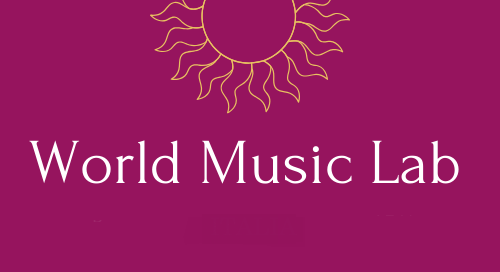World Music Lab 🐸 FROM FARMERS TO FANS
What Direct-to-Consumer Food Markets Teach Us About the Future of Music Distribution!
🌟 Hello!
A couple of years ago, I was exchanging ideas with a colleague about the future of independent music, drawing parallels with our shared experience in organic farming and community-supported agriculture (CSA). Over the past decades, direct-to-consumer (DTC) food markets have transformed how people purchase and engage with food. Farmers’ markets, CSA programs, and online farm-to-table initiatives have
emerged as compelling alternatives to large-scale distribution chains. These movements provide fresher, higher-quality products while strengthening connections between producers and consumers. Could independent musicians and local music communities adopt a similar approach to create a more sustainable and community-driven direct-to-fan (DTF) music market?
The Rise of Direct-to-Consumer Food Markets
The industrial food system, dominated by large-scale retailers and supply chains, has often disconnected producers from consumers. Farmers struggled to receive fair prices for their goods, while consumers sought higher quality and more transparency in their food sources. Direct-to-consumer markets emerged as a response to these challenges, emphasising:
Fair Pricing – Cutting out middlemen allows farmers to earn more while keeping prices reasonable for consumers.
Community & Trust – Customers develop relationships with local farmers, creating loyalty and shared responsibility.
Unique & High-Quality Products – Small-scale producers can offer artisanal and niche products that supermarkets don’t stock.
Experiential Value – Farmers’ markets provide more than just food; they create a social and cultural hub where people gather, share knowledge, and celebrate local production.
Ecological Sustainability – By purchasing from small and local farmers who use eco-friendly methods, consumers support environmental stewardship and contribute to a healthier planet.
Applying the Model to Music: A Direct-to-Fan Marketplace
Like small-scale farmers, independent musicians often struggle with industry gatekeepers—labels, promoters, streaming platforms, and algorhythms—who take a significant cut of revenues while limiting direct artist-audience interactions. A direct-to-fan (DTF) music market, inspired by the DTC food movement, could prioritise:
Fairer Revenue Distribution – Selling music, merchandise, and tickets directly allows artists to retain more earnings without platform cuts.
Stronger Artist-Fan Relationships – Fans who purchase directly from artists feel a greater sense of connection and loyalty.
Exclusive & Niche Content – Like artisanal food, unique and limited-edition releases, fan-only content, and direct commissions (e.g., personalised songs) could drive engagement.
Community-Based Music Hubs – Physical or digital marketplaces, similar to farmers’ markets, could create spaces where artists showcase their work, interact with fans, and collaborate with other musicians.
Building Localised Direct-to-Fan Ecosystems
The key to a thriving DTF music market is community engagement. Just as local farmers’ markets bring together producers and consumers in meaningful ways, localised music markets can foster deeper artist-audience interactions. Some potential ideas include:
Local Indie Music Markets: Pop-up events where artists sell music, vinyl, merch, and perform in small, intimate settings.
Subscription-Based Support (Music CSA Model): Fans subscribe to an artist’s work, receiving exclusive content, early access to releases, and live experiences.
Online Marketplaces for Indie Music: Platforms that facilitate direct sales of music and merchandise while promoting artist-owned distribution channels.
Regional Music Cooperatives: Artists band together to create networks that amplify their reach, organise joint sales events, and share resources.
Conclusion
The success of direct-to-consumer food markets has shown that when producers and consumers engage in direct relationships, both benefit. A similar movement in the music industry—based on transparency, fair pricing, and community-building—could empower independent musicians to reclaim control over their careers. By fostering a direct-to-fan ecosystem at a local and community level, we could reshape how music is experienced, valued, and sustained in the long term.
What if, instead of relying solely on algorithms and industry middlemen, artists could create their own vibrant marketplaces—bringing their music straight to the fans who truly appreciate it?
Check out our services, ask for guidance, and stay tuned!
Eric
CHECK THE MUSIC ARTIST BLUEPRINT!
Copyright (C) 2025 Music4You/World Music Lab. All rights reserved.






